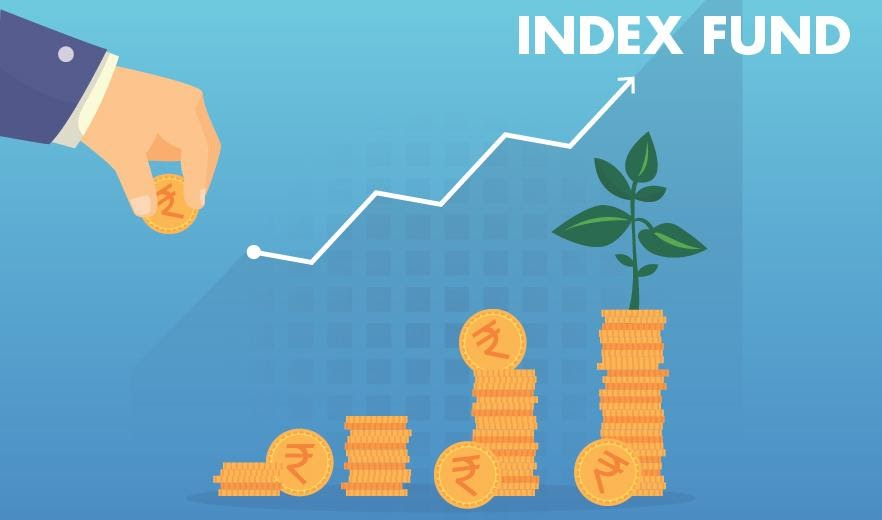An index fund comprises a wide range of equities, lowering risk by diversifying your portfolio, and is a good choice for novice investors who want to learn about the market while avoiding the high costs of actively managed funds.
Index funds are also excellent for time-pressed investors who cannot consistently monitor the market. However, investing just in an index fund is not a foolproof technique to secure a profit on one’s money.
The Most Profitable Index Funds to Invest In
The best approach to guarantee that your money will be safe in the long run is to put it into an index fund that aligns with your financial goals. Index funds are popular with investors because of their cheap yearly fees, moderate volatility, and reasonable returns.
We’ve tried to simplify your search by selecting index funds to help you reach your investment objectives. However, it takes time to analyze all index funds that fulfill that criterion.
Fidelity ZERO Index Fund for Large Caps
Investors flocked to FNILX because of its low-cost ratio. The index is constructed so that it may monitor how well large-capitalization United States firms do in terms of their stock returns.
Instead of tracking the S&P 500 index fund, it follows the Fidelity U.S. Large Cap Index. The main benefit to investors is that they don’t have to pay the yearly license charge to use the S&P brand. An additional advantage of this index is that there is no minimum investment requirement. Inexperienced investors who don’t want to put a lot of capital at risk will find this ideal.
The Vanguard S&P 500 ETF
Investors seeking a fund that tracks the S&P 500 often choose to invest in the Vanguard fund due to its enticing features. In addition to being one of the biggest funds available, this one also boasts a low cost-per-share. Every $1,000 you invest will cost you $0.30 (0.03%).
This exchange-traded fund (ETF) seeks to match the S&P 500’s returns by reducing risk and keeping expenses low. Investors flock to this index since Vanguard is a major player in the financial industry and backs it.
The Schwab S&P 500 Index Fund
SWPPX attempts to mimic the S&P 500’s total return. With this service, you get access to the 500 largest U.S. firms and around 80% of the market value of those companies.
The cheap cost of the fund is a significant selling point for investors. This index fund has no minimum required investment amount to become a shareholder. It had returns virtually identical to the S&P 500 from 1997 through 2021. The Charles Schwab Corporation serves as the sponsor for this index product.
SPDR S&P 500 ETF Investing
SPY is a well-known index fund that follows the S&P 500 index. As a precursor to the rise in popularity of ETFs, it launched in 1993. There is a 0.095% cost ratio for this investment vehicle.
State Street Global Advisors serves as the fund’s custodian and manages hundreds of billions of dollars. For its benchmark, SPDR utilizes the S&P 500’s pre-tax returns. If you are looking for an ETF with a significant daily trading volume, go no further than the SPDR S&P 500 Total Return ETF.
ETFs that track the Russell 2000 index
As a US-based investor, VTWO is an excellent choice. The fund follows the Russell 2000 and offers exposure to investors looking for small-cap firms with considerable growth potential.
More than 2,000 small and medium-sized businesses are part of the fund’s holdings. A yearly cost ratio of 0.10% will be charged to your account. The Class A common stock dividend, on the other hand, is paid out in cash every three months.
This investment is better suited for long-term investors because it has a higher share price volatility than bond funds. Healthcare, industrial, and financial companies make up the bulk of this index portfolio.
Contact Information:Email: mackhales@bellsouth.netPhone: 7705402211Bio: Mack Hales has spent the past 4 decades helping clients prepare for retirement and manage their finances successfully. He also works with strategies that help clients put away much more money for their retirement than they could in an IRA or even a 401k. We involve the client’s CPA and/or their tax attorney to be sure the programs meet the proper tax codes.
Mack works with Federal Employees to help them establish the right path before and after retirement. The goal is to help the client retire worry-free with as much tax-free income as possible and no worries about money at risk of market loss during retirement.
Mack has resided in Gainesville, GA since 1983, so this is considered home. Mack is married to his wife of 51 years, has two boys and five grandchildren.Disclosure: Investment advisory services are offered through BWM Advisory, LLC (BWM). BWM is registered as an Investment Advisor located in Scottsdale, Arizona, and only conducts business in states where it is properly licensed, notice has been filed, or is excluded from notice filing requirements. This information is not a complete analysis of the topic(s) discussed, is general in nature, and is not personalized investment advice. Nothing in this article is intended to be investment advice. There are risks involved with investing which may include (but are not limited to) market fluctuations and possible loss of principal value. Carefully consider the risks and possible consequences involved prior to making any investment decision. You should consult a professional tax or investment advisor regarding tax and investment implications before taking any investment actions or implementing any investment strategies.







